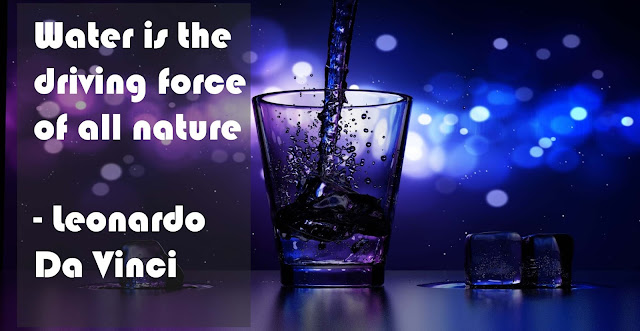Before getting in to water only fasting, let me give a little background on why I even tried this fasting.
Why water only fasting is even relevant?
The Zero Calorie Diet:
Benefits Of 7 Day Water Fasting:
- Zero calories consumed, forcing your burn about 1 - 2 pounds of fat per day, making it the fastest weight loss method.
- Improves insulin sensitivity due to less fluctuation in blood sugar levels.
- Improves body repair functions, recovery and healing from decreased inflammation.
- Reduces the stress levels, decreases blood pressure and rejuvenates the body.
- Increases immunity due to better cell resistance and repairs.
- Enables reduction in cancer cell proliferation due to improved growth harmone activity.
- Anti aging effect and cognitive decline.
- Lowers the risk of heart disease.
- Solves an array of digestive problems as the fast restarts your complete digestion process. Problems that can be solved includes gastritis, irritable bowels, constipation, diarrhea, gas, dyspepsia, and loss of appetite.
- Find better control over their thoughts and diet after the fast.
- Builds confidence in your bodies ability.
- Helps you in your spiritual journey and self realization.
Who To Fast:
Water fasting is not for everyone. People with the following medical conditions will have to seem medical advice before you can perform a water fasting. Your Doctor may advice you on how you can take can take up the fast or would want you not to move forward:
- Heart disease, including heart failure, arrhythmias (especially atrial fibrillation), history of a heart attack, valve problems, or cardiomyopathy
- Alzheimer’s disease or organic brain syndrome
- Alcoholism
- Paralysis
- Pregnant or breastfeeding
- Taking medication you cannot stop taking
- Thyroid dysfunction
- Any eating disorder like anorexia or bulimia
- Low blood sugar (hypoglycemia) or diabetes
- Post-transplant
- Enzyme deficiency
- Late stage kidney or liver disease
- Lupus
- AIDS, tuberculosis, or infectious disease
- Late stage cancer
- Vascular disease or poor circulation
Obese people trying to lose weight can take the fast and observe immediate results. Although, it is necessary to note that the lost pounds might return once the calories come back into your diet. Underweight people might find the fast too grueling, and can experience more fatigue compared to others. Some might face complications during the fast, and they need to stop it immediately.
How To Fast:
1. Planning:
2. Before The Fast:
3. Water only Fast:
Don’t drink all that water at once! Spread out your water consumption throughout the day. Try setting out three 1-gallon jugs every day, so you can see how much water you should drink.
Don’t drink more water than the recommended amount, as this can throw off the balance of salt and minerals in your body and cause health problems.
4. Weight Loss:
5. Body Reactions:
Differentiate normal from abnormal side effects. It’s not uncommon to feel some dizziness, a little weakness, nausea, or occasional skipped heartbeats while fasting. However, stop fasting and seek medical attention if you lose consciousness, feel confused, have more heart palpitations than one or two a day, have severe stomach discomfort or headache, or any other symptom that feels alarming to you.
6. Avoid dizziness:
After 2-3 days of water fasting you may experience dizziness if you stand up too quickly. Avoid this by getting up slowly and doing some deep breathing before standing. If you do get dizzy, immediately sit or lie down until it passes. You can also try putting your head between your knees or have your leg raised with some support under it like a chair. This will help blood flow back in your brain making you feel better. If you become so dizzy that you lose consciousness, stop fasting and see your doctor.
7. Rest:
8. Avoid intense exercise during this time:
Your energy may fluctuate between feeling weak and tired and feeling energetic. It all depends on the ability to generate energy, controlling insulin level, blood sugar and blood pressure. Any fluctuation during this period is normal. Even when you have lots of energy, don’t exert yourself. Instead, try gentle, restorative yoga. Yoga is a calming way of stretching your muscles and getting some light exercise.
Yoga and light stretching may feel good to some people, and be too vigorous for others. Listen to your body and only do what feels comfortable
9. Break The Fast:
Break your fast with orange or lemon juice first. Then proceed to add foods to your diet gradually. Eat small amounts about every 2 hours, at first. Proceed in a step-wise process from easily digested foods to foods that are harder to digest. Depending on the length of your fast, you can spread this process out over one day or many days. This is a general order in which you can introduce food when you break your fast. Depending on how your digestion reacts, you can skip a few if needed.
- Fruit juice
- Vegetable juice
- Raw fruit and green leafy vegetables
- Yogurt
- Vegetable soup and cooked vegetables
- Cooked grains and beans
- Milk, dairy, and eggs
- Meat, fish, and poultry
- Everything else
10. After The Fast:
How your body reacts and what you can expect from a 7 days water fasting
If you are attempting a one week fast for the first time, be prepared for few body reactions during the process. As a habit, the body is used to consuming food at regular intervals. When there is sudden lack of food intake, you may feel weakness, dizziness, nausea, etc which is quite normal. Sometimes you may feel very energetic, but the very next moment you may feel weak. These fluctuations are common and normal. There may be also a drop in blood pressure and slight headaches. One need not get frightened with these reactions. You should take rest or lie down, when ever these symptoms become intense. Consult a doctor if these reactions are too intense.
One may even feel a sudden bout of hunger. To overcome it, just drink one or two glasses of water. Then lie down and take rest. The hunger should go away in a short time. If the hunger keeps recurring, consult your doctor. You can discontinue the fast if the hunger is unbearable. But in most cases, it is not a serious issue.
These symptoms are more intense in the first 3 – 5 days. After about 3 days the digestive fire begins to slow down and becomes weak. Usually after 3 -5 days the hunger bouts may disappear. After 5 days one may even feel very light with total lack of hunger. This may vary from person to person. One may feel a great sense of well- being. One may even feel energetic enough to play a game of badminton. But do not exert yourself at this stage. You may take light walks instead. Do some light tasks like working on your laptop or watching television instead.
Food craving is another common reaction during a one week water fast. One starts thinking of various types of tasty food and how to prepare them. You may experience this even if you are not feeling hungry. One may even day dream of going to various restaurants and eating some special dishes. These are normal. Do not fight these thoughts. Just give some distraction to the mind, like watching a movie, television, music, etc.
Fasting is a time for intense cleansing at physical and mental level. The body has a natural mechanism to throw out toxins from the body during the healing process. These toxins are mostly thrown out through digestive system into the intestines. At this time, one gets a thick white coating on the tongue. The coating may remain even after scrapping the tongue. This is a sign that the toxins are being eliminated.
An enema, few times a week (or on alternate days), is advised by the doctors during this time to speed up the removal of toxins which are accumulated in the large intestine.
The toxins may also get removed through the lungs. At that time one may get foul breath which may last for a day or two.
One may feel nausea at times, which may be caused by acidity in the stomach. This acidity can be removed by cleaning the stomach through a simple process. Just drink a liter or more of slightly warm salt water and vomit it all out. This is called Kunjal Kriya or Vaman Kriya in yoga and is a common practice in both ayurveda and naturopathy to cleanse the stomach.
During the seven days, the mind can also throw up lot of impressions from the subconscious and unconscious mind. These impressions can cause strong emotions. One has to take a witness attitude towards these thoughts and emotions. Remember, the mind is going through a cleansing process. Give the mind some healthy distraction during such times and it should be fine.
Please understand that these are normal reactions during long term fasts. Continue the 7-day fast with courage.
Water is the drink of life. It can rejuvenate your life too. Just make sure you do the 7 day water fast right and enjoy its benefits. It is important not to be misinformed about how the weight loss benefits of water fast work. Weight loss is no doubt the quickest. But on the flip side, it is for this very reason that it will find its way back once you start binging on high-calorie foods.







